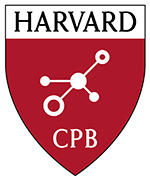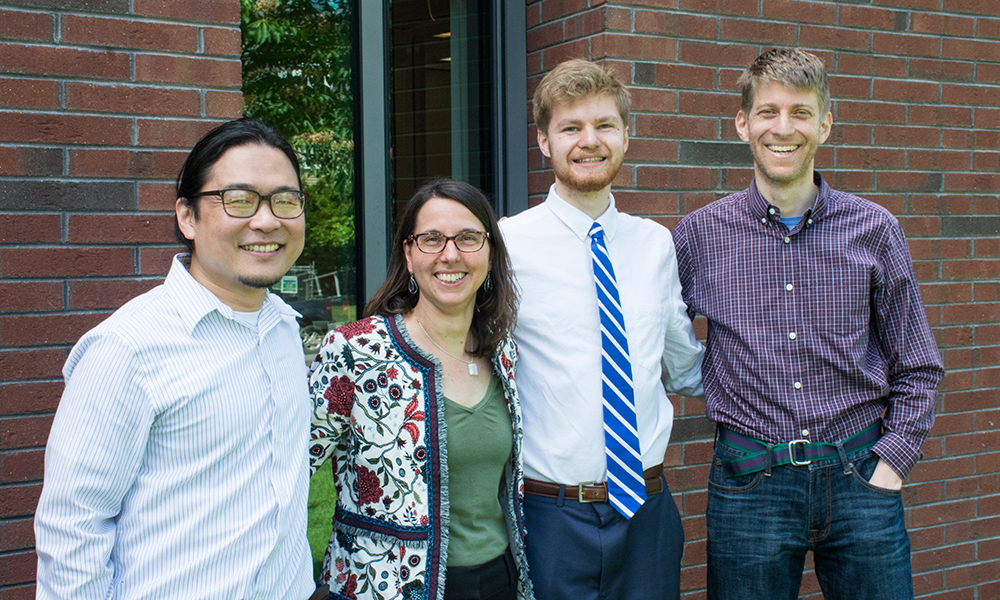Ryan Ward, a Chemical and Physical Biology concentrator who graduated this May, will soon be leaving for a Fulbright fellowship position at the Bowler Lab at the École normale supérieure (ENS) in Paris. His master’s work will be on the “genetic and epigenetic underpinnings of diatom adaptation” with data from the Tara Oceans project.
“Diatoms are a group of microscopic algae, and I first learned about them as a student in MCB 68: Cell Biology: Through the Microscope, which is taught by Professors Ethan Garner and Jeff Lichtman,” said Ryan. “MCB 68 required extensive hands-on work with microscopes, and we frequently observed diatom specimens. To the normal eye diatoms are invisible, but under magnification, these absolutely beautiful cells come into focus. It feels like you’re looking at ocean snowflakes, only these were once living creatures.”
It wasn’t until Ryan met Chris Bowler, a plant and algae genomics expert and professor at ENS, that he decided to seriously pursue research on these fascinating organisms.
“By sheer serendipity, Chris was at Harvard during the 2016-2017 year as a Fellow at the Radcliffe Institute of Advanced Study,” said Ryan. “We started talking and it turned out that my research on the evolution of RuBisCO in cyanobacteria was highly compatible with his work. Dr. Bowler strongly encouraged me to join his lab Paris, so I started looking for ways to fund my research. That’s how I ended up applying for a Fulbright.”
The mission of the Tara research expeditions is to study the effects of climate change on the ocean ecosystem, and Ryan’s proposed course of study fits well within the project’s scope.
“Diatoms are critical for the ocean ecosystem,” Ryan said. “They are responsible for about 40 percent of the photosynthesis in the ocean ecosystem, forming the base of the marine food web. In the Bowler Lab I’m interested in studying ancient diatom DNA to understand how these creatures will adapt in response to climate change. Ancient diatom DNA is present in sediments layers that have accumulated over thousands of years on the sea floor. Using computational methods, I will examine how the diatom genome and epigenome have changed in the past 50,000 years. By studying how these organisms have adapted in the past, we can gain a better picture of how they will change as the ocean continues to warm.”
The Fulbright program’s goals are to promote intercultural relations by offering grants to artists, professionals, and students like Ryan to study and work abroad. While Ryan will be gaining new international contacts though his acceptance to the Fulbright program, he is grateful for the mentorship of the faculty and staff he is leaving behind.
“I really want to thank my undergraduate thesis advisor, Betul Kacar,” said Ryan. “Through her guidance I gained a love for studying evolution at the molecular level, and I could not have applied without her unwavering support. I also owe massive thanks to Cody McCoy, lead Fellowships Tutor in Adams House, and Gwen Volmar, assistant director in the Office of Undergraduate Research and Fellowships. Both Cody and Gwen provided essential guidance throughout the process of my Fulbright application. Last, I want to thank Katherine Presswood, my first French teacher.”
Ryan is now hard at work preparing for his move overseas. His excitement over the opportunity is compounded by how unexpected he found the results of his application.
“It was surreal!” he said. “I figured the chances of winning a grant were so low that I didn’t even bother telling my parents that I had applied. In fact I was actually at home at the end of spring break when I received the acceptance email totally out of the blue, and the only person happier than me was my mom.”
The teachers and staff of Harvard wish Ryan all the best in the next phase of his academic career.
“I am so happy to hear Ryan was awarded the Fulbright,” said Dominic Mao, Assistant Director of Undergraduate Studies for CPB and MCB. “Midway into his senior thesis, his mentor moved to another university. Ryan demonstrated great courage and dedication to soldier on and successfully complete his thesis. This is exactly the kind of perseverance that is needed in research!”
by Mary Parker




